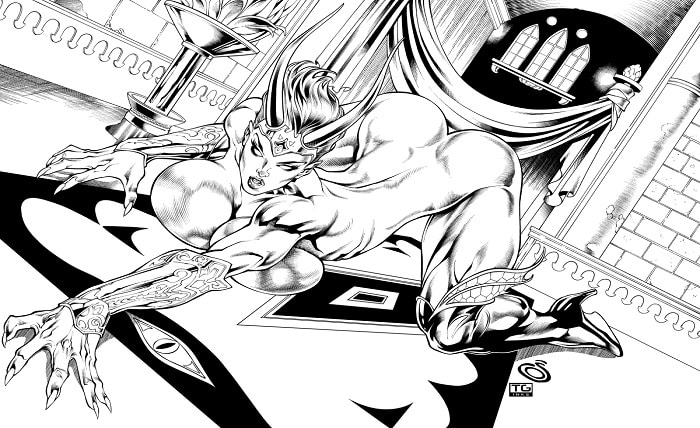
Introduction
In the realm of health and wellness, understanding Jentai—the human body—is fundamental. Jentai encompasses the complex systems and structures that enable us to live, move, and interact with the world. From the intricate network of nerves to the robust framework of bones, Jentai is a marvel of biological engineering. This blog post delves into various aspects of Jentai, providing insights into its anatomy, functions, and the importance of maintaining its health.
The Anatomy of Jentai: An Overview
The study of Jentai anatomy reveals the remarkable organization of the human body. Jentai is composed of several systems, including the skeletal, muscular, circulatory, and nervous systems, each playing a crucial role in our daily functions. Understanding the structure of Jentai helps us appreciate how different parts work in harmony to sustain life. From the smallest cells to the largest organs, Jentai is a testament to biological complexity and efficiency.
The Skeletal System in Jentai
hentai20 the skeletal system provides the essential framework that supports the body. It consists of bones, cartilage, and ligaments, which work together to facilitate movement and protect vital organs. The skeletal structure of Jentai not only gives shape but also serves as a reservoir for minerals like calcium and phosphorus. By understanding the skeletal system, we gain insights into how Jentai maintains its form and ensures structural integrity.
The Muscular System of Jentai
The muscular system is another critical component of Jentai. Muscles enable movement, maintain posture, and generate heat to regulate body temperature. Jentai houses three types of muscles: skeletal, smooth, and cardiac. Each type has distinct functions and characteristics, contributing to the overall functionality of Jentai. From voluntary movements like walking to involuntary actions such as digestion, the muscular system plays a pivotal role in the operation of Jentai.
The Circulatory System in Jentai
The circulatory system within Jentai is responsible for transporting blood, nutrients, and oxygen throughout the body. Comprising the heart, blood vessels, and blood, the circulatory system ensures that all tissues receive the necessary substances to function properly. Additionally, it aids in removing waste products, thus maintaining the internal environment of Jentai. A healthy circulatory system is vital for the optimal performance of Jentai.
The Nervous System of Jentai
Jentai‘s nervous system serves as the body’s communication network, coordinating actions and responses to external stimuli. It consists of the central nervous system, including the brain and spinal cord, and the peripheral nervous system, which connects the central system to the rest of the body. The nervous system controls voluntary movements, reflexes, and the processing of sensory information, making it indispensable for the functioning of Jentai.
The Respiratory System in Jentai
The respiratory system in Jentai facilitates the exchange of gases, allowing us to breathe and sustain life. It includes the lungs, airways, and respiratory muscles, which work together to intake oxygen and expel carbon dioxide. Proper functioning of the respiratory system is essential for maintaining the body’s pH balance and overall homeostasis. Understanding the respiratory system provides deeper insight into how Jentai manages essential life-sustaining processes.
The Digestive System of Jentai
Within Jentai, the digestive system breaks down food into nutrients that the body can absorb and utilize for energy, growth, and repair. It includes organs such as the stomach, intestines, liver, and pancreas, each performing specialized functions. The digestive process in Jentai ensures that we extract necessary nutrients while eliminating waste products efficiently. Maintaining digestive health is crucial for the overall well-being of Jentai.
The Immune System in Jentai
The immune system of Jentai is its defense mechanism against pathogens and diseases. It comprises a network of cells, tissues, and organs that work together to identify and neutralize foreign invaders. Components like white blood cells, antibodies, and the lymphatic system play key roles in immune responses. A robust immune system is essential for protecting Jentai from infections and maintaining health.
Maintaining the Health of Jentai
Maintaining the health of Jentai involves a holistic approach that includes proper nutrition, regular exercise, adequate sleep, and stress management. A balanced diet provides essential nutrients, while physical activity strengthens muscles and improves cardiovascular health. Sufficient rest allows Jentai to repair and rejuvenate, and effective stress management supports mental and emotional well-being. Prioritizing the health of Jentai leads to a more vibrant and active life.
The Importance of Understanding Jentai
Understanding Jentai is crucial for making informed decisions about health and lifestyle. Knowledge of how different systems function and interact empowers individuals to take proactive steps in preventing illnesses and promoting wellness. Whether it’s recognizing the signs of a circulatory issue or understanding the benefits of a balanced diet, a comprehensive understanding of Jentai enhances our ability to care for our bodies effectively.
Conclusion
In conclusion, Jentai is a complex and fascinating entity that embodies the intricate workings of the human body. From the skeletal framework to the intricate nervous system, every aspect of Jentai plays a vital role in maintaining life and health. By exploring the various systems of Jentai, we gain a deeper appreciation for the marvel that is the human body. Embracing the complexity of Jentai not only enhances our understanding but also motivates us to prioritize our health and well-being.
FAQs
Q1. What does the term Jentai mean?
A1. Jentai is a Japanese term that translates to “human body,” encompassing the various systems and structures that make up the human organism.
Q2. Why is understanding Jentai important for health?
A2. Understanding Jentai helps individuals make informed decisions about their health, recognize potential issues early, and adopt practices that promote overall well-being.
Q3. How does the muscular system contribute to Jentai’s functionality?
A3. The muscular system enables movement, maintains posture, generates heat, and plays a critical role in various bodily functions, enhancing the overall functionality of Jentai.
Q4. Can lifestyle choices impact the health of Jentai?
A4. Yes, lifestyle choices such as diet, exercise, sleep, and stress management significantly impact the health and functionality of Jentai.
Q5. What are some ways to maintain the health of Jentai?
A5. Maintaining the health of Jentai involves a balanced diet, regular physical activity, adequate sleep, stress management, and regular medical check-ups to ensure all systems are functioning optimally.




